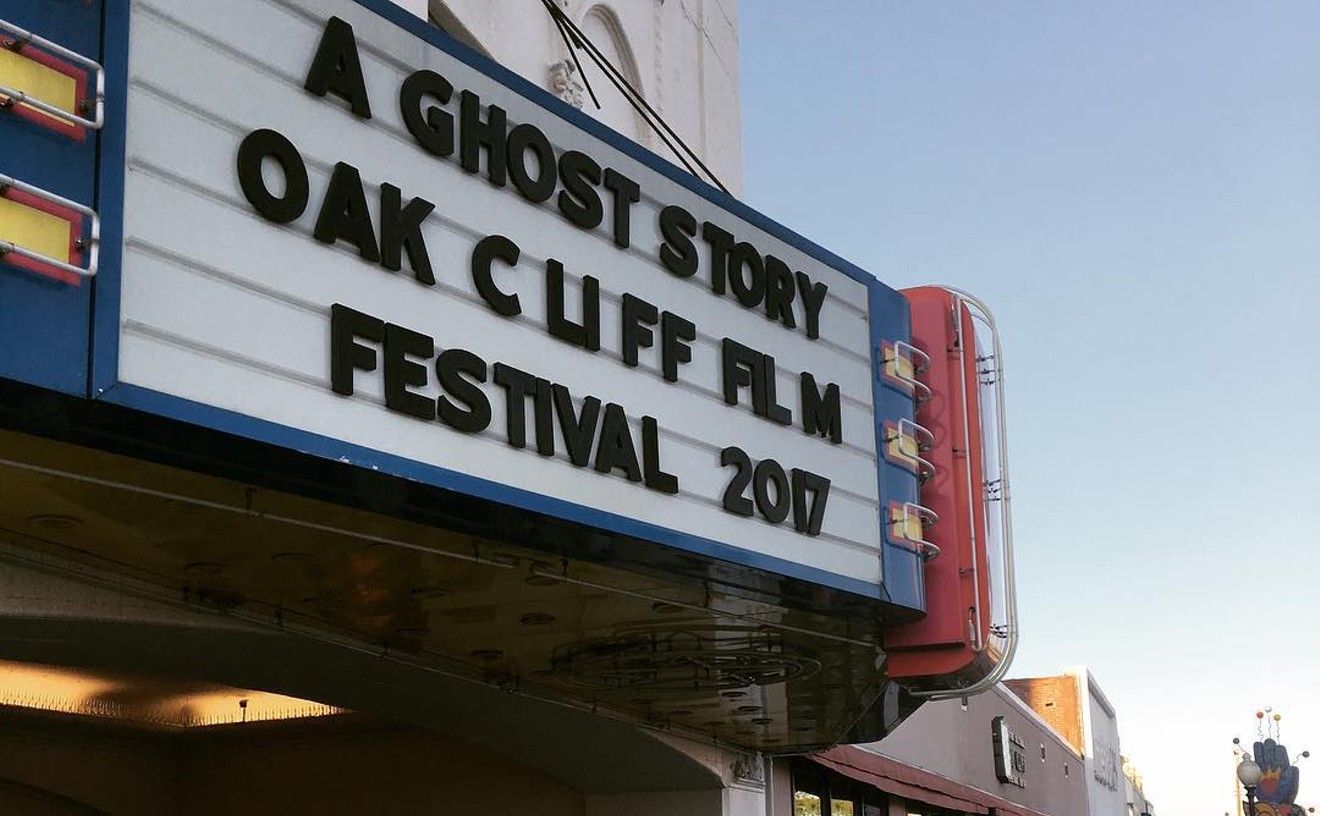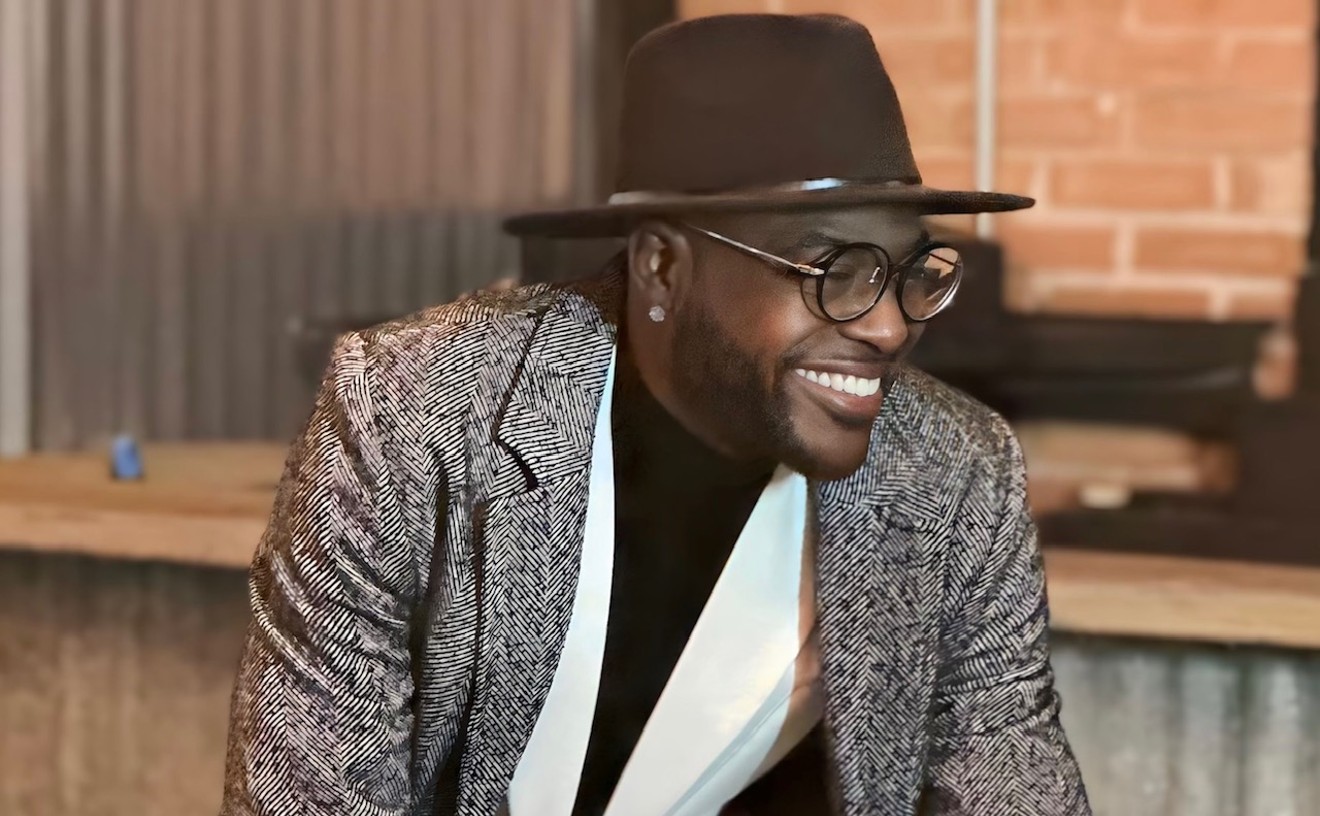Dallas is home to VideoFest, the oldest, largest video festival in the United States. Since Bart Weiss started it in the '80s, the annual event has screened all kinds of media, ranging from experimental films, to video art, animations, documentaries and features. And January 9, the Video Association of Dallas -- the force behind VideoFest -- inaugurates a new festival that focuses exclusively on experimental film. The McKinney Avenue Contemporary plays host to Dallas Medianale through March, with a program boasting screenings, exhibitions and performances.
Last year, when VideoFest was held at the Alamo Drafthouse in Richardson, organizers found it hard to properly showcase the experimental films. "Experimental film and video art has a specialized, rarified aesthetic and it's hard for it to function within the larger festival," says Michael Morris, a video artist and educator who has helped program VideoFest events since 2010. "We took stock and said, 'We want to get this work more attention than the large festival can offer it.'"
Morris and the others at the VAD began looking for spaces that could accommodate sit-down screenings as well as exhibitions. "[For some things you] really need to have people sit down and watch it rather than come in and it ambiently be playing," Morris says.
The MAC has two gallery spaces, and a black box theater available for screenings -- it perfectly met their needs. "The MAC was our first idea," Morris says. "It was partially pragmatic because they had some room in their programming, but the architecture of that space is really perfect ... It was nice to have it all in one place and someplace that's in Dallas."
Because it proved a bit challenging to draw people to VideoFest in Richardson, finding a convenient, central location for Medianale was a top priority. "It already takes a decision to watch something that's a little challenging," Morris says. "Having it be far away and having to pay for it is pretty discouraging." Medianale will be entirely free.
Morris curated the opening festivities, which kick off in the MAC's black box theater Friday. The evening will begin at 7:30 p.m. with "Cybernetic Cinema Revisited," a series of screenings of early experiments with digital film. "I was trying to focus on that moment of moving between different kinds of moving image media," Morris says, when asked about his curatorial vision.
Highlights will include digital restorations of Lillian Schwartz's early computer films, which she made at Bell Labs in the '70s. "We got them directly from her and they're not easy to see," Morris says. "They came to my attention because she had a retrospective screening at the MOMA two years ago. They haven't been shown a whole lot since then." An archival print of John Whitney's Arabesque, one of the first films he made using digital computers, will also be shown.
Morris' own films explore the relationship between viewers and moving images, a relationship that has evolved greatly since the time of Schwartz's and Whitney's early films. "Now we can encounter an image wherever we want, on demand and we're not bound to it," Morris says. "We have a level of agency we didn't have before, but at the same time our attention is so dispersed and distracted."
Today, film-viewing is often an isolating experience that takes place at home instead of at a theater. Morris believes that it's important to generate face-to-face dialogue around film. "I think there's something worth looking back at about that unified attention and the social kind of unification of the theater space," he says. "A lot of those film experiments were about how to disrupt that space, but they still existed within that ... There's something valuable about experiencing something at the same time and being part of a community."
At 8:15 p.m. Friday, following "Cybernetic Cinema," there will be five intermedia performances, collectively entitled "Now You See." A duo called Cracked Ray Tube -- comprised of Kyle Evans of Austin and James Connelly of Chicago -- promises to deliver one of the most interesting performances of the evening.
"They do this very engaging, aggressive performance that uses repurposed cathode ray tube television sets and computer screens," Morris says. "They build this tower of televisions and they built their own video synthesizers to manipulate them with. So you're getting this synesthetic thing where the audio and video are the same thing and you're seeing it and hearing it at the same time, and it's really physical and visceral."
Other participating artists include Sean Miller, Andrew Blanton and Liz Larsen. VAD director Weiss will VJ an after party "Behind the Screen" at the Texas Theatre in Oak Cliff at 11 p.m., a fun cap to the opening night, which signals the start of more than a month of experimental film-oriented programming at the MAC.
There will be another opening reception on January 17 for Call and Response, an exhibit of video installations co-curated by Charles Dee Mitchell and Danielle Avram-Morgan. "Danielle has studied photography really deeply, so she's thinking about moving back and forth between the still image and the moving image," Morris says. "And Dee really likes the big iconic video artists, so he's bringing in Francis Alys and Bruce Naumaen."
Installations will be available to view during normal MAC gallery hours; check videofest.org for a complete schedule of events.











